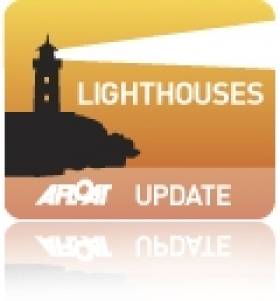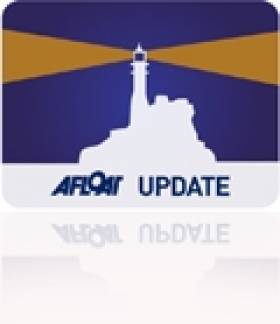Displaying items by tag: software
Marine Notice: Caution On Use Of Unlicensed Electronic Navigational Systems & Software
#MarineNotice - Marine Notice No 4 of 2016 advises of the risks inherent in the use of unlicensed electronic navigation systems and cautions against their use.
Unlicensed software and electronic charts may contain errors, resulting in inaccuracies in displayed information and indicated vessel position. Such unlicensed software should not be used for navigation purposes.
Vessel operators are reminded of the requirement to carry suitable nautical instruments and adequate and up-to-date charts for their intended voyages. All equipment fitted in compliance with shipborne navigational equipment regulations should be type approved.
The installation and use of unlicensed navigational systems and software on-board commercial vessels may invalidate a vessel’s certification and may also lead to the cancelation of a vessel’s certificates.
If in doubt, vessel owners/operators should confirm with their suppliers that their software is up to date and licensed.
Software Firm Moves Into Baily Lighthouse
#LIGHTHOUSES - A software firm specialising in emergency response technology has made its new home at the Baily Lighthouse in Dublin Bay, according to The Irish Times.
The Howth Head lighthouse is the last in the State to become fully automated, and the vacancy in the adjacent offices is being filled by Decisions [D4H].
The software company was started by emergency responders who develop remote service technology for oil exploration, hazmat workers, firefighters, coastguards and more the world over.
[D4H]'s new location will house the company's engineers, customer service staff and management.
Notice on Mandatory Training for Navigation by ECDIS
The latest Marine Notice from the Department of Transport, Tourism and Sport details the training requirements for the use of Electronic Chart Display and Information Systems (ECDIS) as a primary means of navigation.
Mandatory carriage requirements for ECDIS will be phased in between 1 July 2012 and 1 July 2018 according to ship size and class. All shipowners, masters and deck officers of merchant and fishing vessels, yachtsmen, nautical colleges and other users are required to complete both generic and ship specific training for the use of ECDIS.
The notice outlines the following as meeting the requirements for generic training:
- A NARAS Operational course completed after 1 January 2005.
- An ECDIS programme based on the IMO Model ECDIS course (1.27) approved by the Irish Maritime Administration.
- An ECDIS programme based on the IMO Model ECDIS course (1.27) approved by the maritime administration of an EU Member State or by a country recognised by Ireland under STCW 78.
As far as ship-specific training, the following areas should be covered in training delivered by the ECDIS manufacturer (computer-based training packages are acceptable):
- familiarisation with available functions
- familiarisation with the menu structure
- display setup
- setting of safety values
- recognition of alarms and malfunction indicators and the actions to be taken
- route planning
- route monitoring
- changing over to backup systems
- loading charts and licenses
- updating of software
Further details are available in Marine Notice No 51 of 2011, available to read or download as a PDF HERE.
Software Instrumental to Rescue of Rambler 100 Crew
Search and rescue mapping software developed in Rhode Island was "instrumental" in efforts to retrieve crewmembers from the stricken Rambler 100 off Fastnet last week.
The SARMAP software, developed by ASA (Applied Science Associates, Inc) provides rapid predictions of the movement of drifting objects and missing persons at sea.
For search and rescue units it can provide search patterns and calculate the probability of containment, probability of detection, and probability of success.
As previously reported on Afloat.ie, the Rambler 100 capsized off the Cork coast while competing in last weekend's Rolex Fastnet Race.
The Rambler 100’s personal locator beacon activated when the yacht overturned, which alerted rescuers to the location of the 16 stranded crewmembers still with the vessel, but recovering the five lost at sea required a more advanced approach.
The Irish Coast Guard used SARMAP’s sophisticated tracking capabilities to predict the movement of the drifting survivors and calculate a precise search area.
ASA president Eoin Howlett commented: “We have successfully worked with the Irish Coast Guard for many years; they are an innovative agency and have a history of implementing the latest in ocean technologies.
"We are very pleased that our software, combined with their rapid decision-making, resulted in such a positive outcome.”


























































